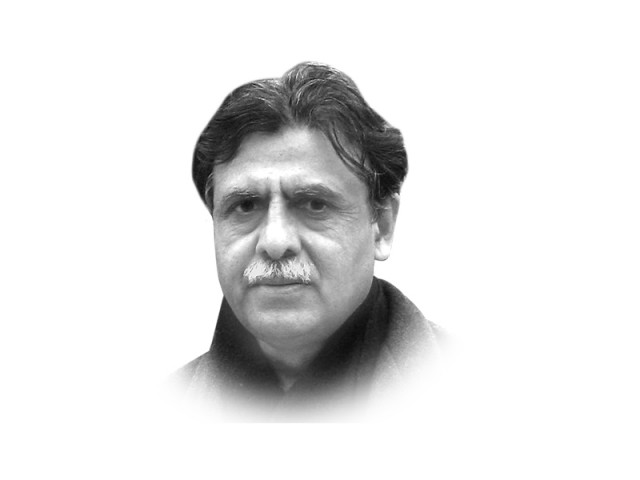Bringing about electoral reforms
It is high time that we go for staggered polls in the country.

In this piece, I wish to make some key recommendations, the foremost being the eligibility criterion for the selection of the election commissioners, including the Chief Election Commissioner (CEC). This will be the foundation on which the whole super structure will rest. Any systemic failure or inadequacy at this level can cause serious mishandling of complex managerial issues at subsequent stages. According to the present dispensation, the CEC and the members of the Election Commission of Pakistan (ECP) are drawn from the judiciary. During past general elections, members of the subordinate judiciary have served as returning officers, with this practice not boding well for the august institution, as each election since the 1970s has generated a lot of controversy. The conduct of elections is a massive administrative exercise with an extended outreach requiring multiple connects with different branches of government. The moot point is whether the institution of judiciary provides this kind of exposure and know how to its members during the course of their careers. The parliamentary committee, therefore, should revisit the eligibility clause for the CEC’s appointment, as well as that of the members of the ECP as these are restrictive in nature. Considering the best practices around the world, the ECP members could be drawn from any walk of life. All they need is proven integrity, ability, and an array of vast administrative and managerial experience. The Indian Constitution, for instance, does not require members of the Indian election commission to belong to any single walk of life, although generally, they are drawn from the civil service and have proven credible reputations. In the UK, Jenny Watson, chairperson of the election commission, has a background of working in the non-profit sector for over 20 years. Constitutional provisions may, therefore, be amended to give equal chance to persons with distinguished careers in the public, private and non-profit sectors. The manner in which these appointments are made have also raised serious concerns. In practice, it all boils down to a compromise being reached between the leader of the house and leader of the opposition, and incumbent provincial governments in the case of provincial election commissioners. This system should be revisited to make it more credible, especially since the opposition leader may not necessarily represent the opinion of the entire opposition in the house.
Another key recommendation pertains to the constitution of an electoral management service in line with the central superior services. Members of this service should be selected through a competitive process by the Federal Public Service Commission, followed by rigorous training, both within and outside the country. Local government elections are now within the preview of the ECP. Therefore, there is all the more reason to equip it with a permanent service cadre with a defined career path.
While electoral preparation is an ongoing exercise, the conduct of elections is a huge event requiring massive mobilisation of human resources and outreach arrangements. The staff that performs election duties is generally randomly picked at short notice and is not exposed to the nitty-gritties of the exercise, which actually requires competent and well-trained people, who can play significant roles in maintaining the integrity of elections. During the last general elections, for around 70,000 polling stations in the country, a staff of around 650,000 was deployed. This figure can come down if we switch over to the electronic voting machine system. The selection of such a huge number of people without even assessing their competence, understanding, aptitude and integrity has led the system into difficulties. We need to create a permanent reserve pool for election duty well in advance and expose those selected to intensive training programmes. Members of this pool should be paid attractive honoraria and allowances during the period on duty. The selection of the pool should be carefully done after getting a lowdown about the integrity of those being considered for selection. Training modules, including simulation exercises, should be developed on modern lines and adapted to our local conditions. These modules should evolve out of experiences based on previous elections held in the country. The exercise needs to be carried out well in advance of elections and it has to be an ongoing affair.
This now brings us to yet another area: the manner in which elections are held. This massive exercise is compressed into one day, with things often getting out of hand on account of capacity issues. It is high time that we go for staggered polls in the country. In a volatile political environment with rivals armed to the teeth, imagine the thinning of the police force over polling stations. These kind of weak links provide tempting grounds for booth snatching and ballot stuffing. General elections need to be stretched over days for optimal deployment of resources, providing better managerial intensity for a closely contested exercise.
Published in The Express Tribune, September 9th, 2014.
Like Opinion & Editorial on Facebook, follow @ETOpEd on Twitter to receive all updates on all our daily pieces.













COMMENTS
Comments are moderated and generally will be posted if they are on-topic and not abusive.
For more information, please see our Comments FAQ